Keiichiro Shibuya is a gifted musician who has continued to create fresh sounds by crossing different boundaries and evolving. This series, “Massive Life Flow,” explores his mindset and what he envisions for the future. In the tenth installment, we look back on Shibuya’s solo piano concert, Keiichiro Shibuya Playing Piano In The Raw, held in Hamarikyu Asahi Hall in Tokyo last December alongside photos taken by Kenshu Shintsubo.
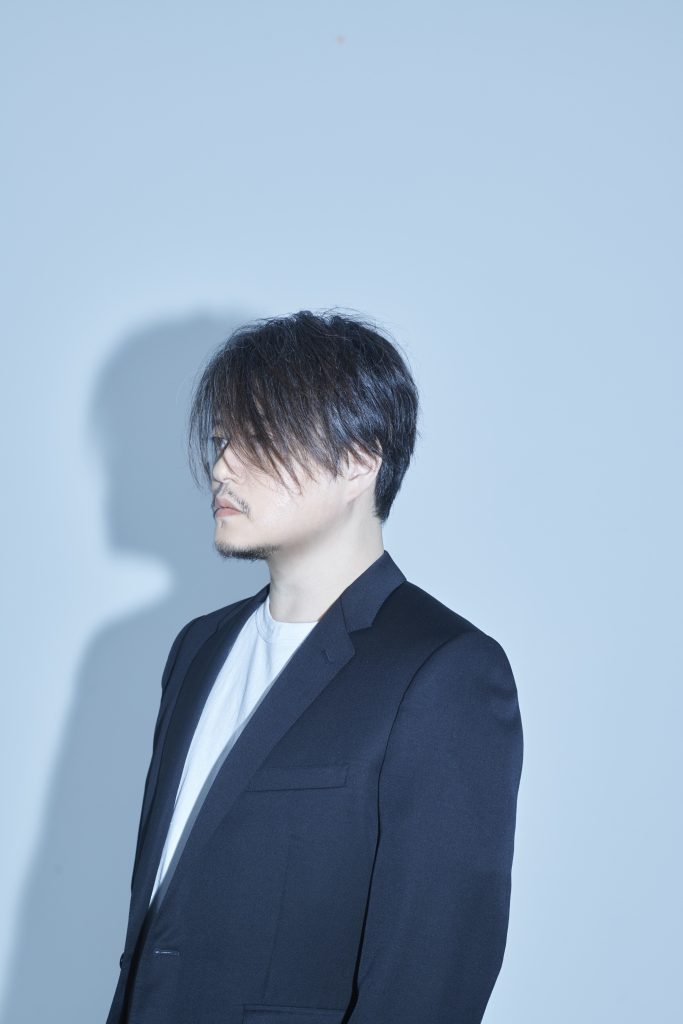
Keiichiro Shibuya
After graduating from the Tokyo University of the Arts with a B.A. in Music Composition, Keiichiro Shibuya founded the music label ATAK in 2002. His work encompasses various mediums, from innovative electronic music to piano solos, operas, film scores, and sound installations.
In 2012, Shibuya composed a Vocaloid opera with no human performers, The End, starring Hatsune Miku. The performance premiered at the Théâtre du Châtelet in Paris and has since toured around the globe. He collaborated with various artists and showed the opera at venues such as the Palais de Tokyo and Opéra national de Paris. In 2018, he composed the Android Opera®︎, Scary Beauty, which utilizes AI and stars a singing android that also conducts an orchestra. The opera has been shown in Japan, Europe, and the UAE. In August 2021, Shibuya’s opera, Super Angels, had its world premiere at the New National Theater Tokyo. In March 2022, he brought his new Android Opera®︎, MIRROR, a collaboration between an android, Buddhist music, shomyo, and an orchestra from the UAE, to Expo 2020 Dubai.
Furthermore, he has also scored for many films. In September 2020, he created the film score for Midnight Swan and won the 75th Music Award at the Mainichi Film Awards and the 30th Japan Movie Critics Award. In August, he composed the soundtrack for KAGUYA BY GUCCI, a short film, and appeared in it with an android. Shibuya recently established the Android and Music Science Laboratory (AMSL), a science laboratory of androids and music, at the Osaka University of Arts and currently teaches there as a visiting professor. He has also announced his collaboration with Sony CSL Paris to research AI and music further. He explores the boundary between technology and life and death.
ATAK:http://atak.jp
Twitter:@keiichiroshibuy
Instagram:@keiichiroshibuy
Photography Ayaka Endo
A superb solo piano concert: an arresting ambiance and ingenious visuals
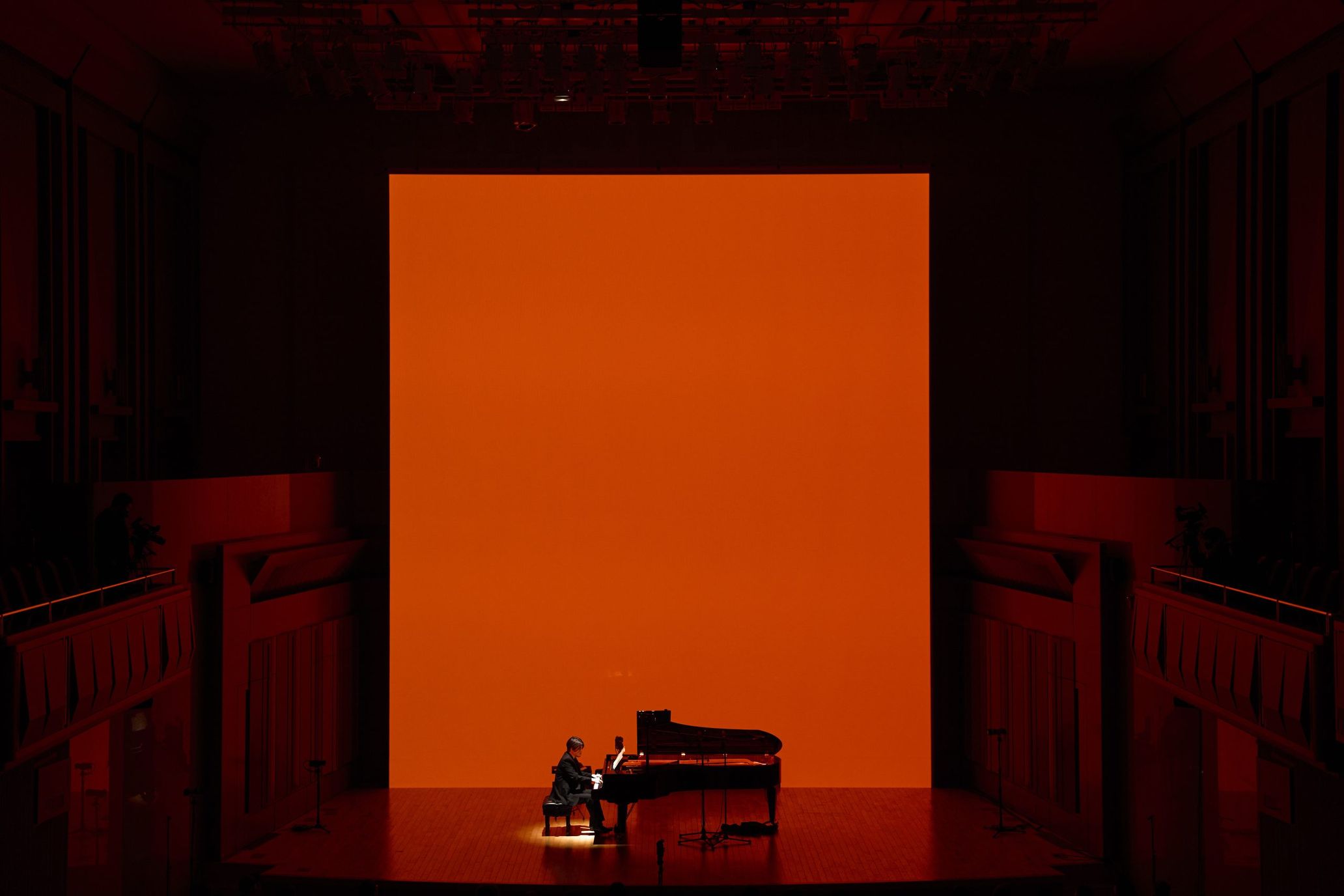
Shibuya had a tremendous year in 2022. He premiered the Android Opera®︎, MIRROR, to the world at Expo 2020 Dubai, launched and started running the Android and Music Science Laboratory with Hiroshi Ishiguro, and scored a short film titled KAGUYA BY GUCCI. It was also a special year for the artist because it marked the 20th anniversary of his label, ATAK. To commemorate this milestone, he did two things.
First, Shibuya released his new album, ATAK026 Berlin, out of the blue on September 11th. The electronic noise album features reconstructed and mastered songs he originally made for his live performance at the 2008 transmediale, a technology and art festival in Berlin, through a contemporary gaze.
Next, he played his first solo piano concert with a live audience in three years since the pandemic hit, titled Keiichiro Shibuya Playing Piano In The Raw, on December 5th. In this report, I’d like to reflect on his concert along with photos taken by Kenshu Shintsubo and explore Shibuya’s pianism and current state.
The venue selected for the fateful evening was Hamarikyu Asahi Hall in Tsukiji, Tokyo. The concert had a fully acoustic system with no PAs, as Shibuya wanted to utilize the hall’s beautiful world-renowned resonance.
Once I stepped inside, a Bösendorfe grand piano, which he says is his favorite model, sat majestically, awaiting the start of the concert. The lights dimmed down once the concert was about to start. Shibuya came onto the stage amid the silence and anticipation that enveloped the room. With a calm demeanor, he sat before the piano and slowly put his fingers on the keys.
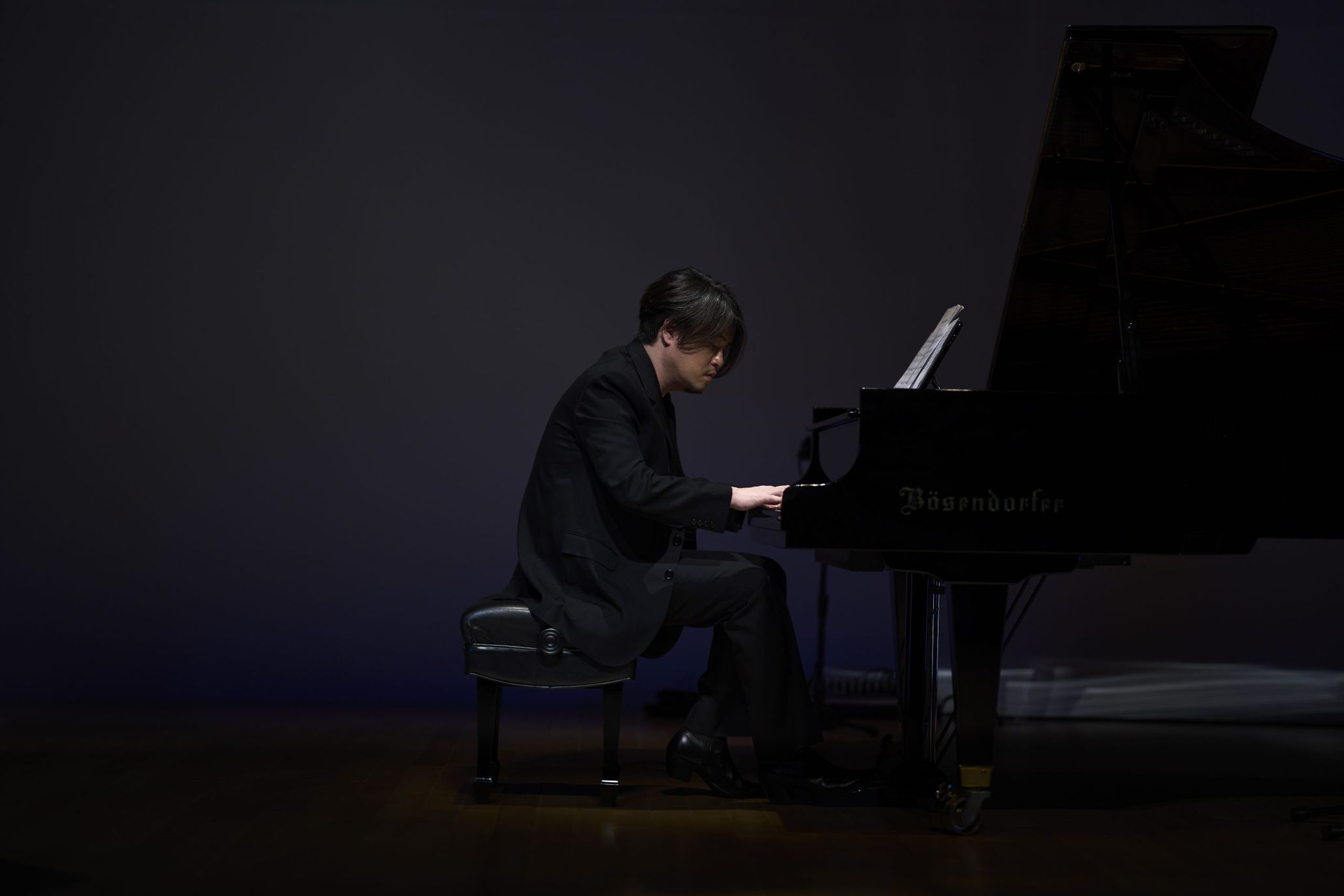
The first song he graced us with was “erosion” from for maria (2009), his first solo piano album. The poetic sentiment—created from the delicate touch of multiple layers of sound—was intensified in the beautiful ambiance, “eroding” the audience like the song’s title. Thus, the concert started with the ultimate musical experience, which could only be enjoyed then and there in person.
On top of the hall’s atmosphere, one other element made the experience even more unforgettable; visuals by Justine Emard, a French visual artist who Shibuya has continuously collaborated with over the past decade.
Unique images that altered between concrete and abstract and inorganic and organic were displayed on a gigantic 9 x 10-meter screen behind Shibuya, making the musical experience visually immersive.
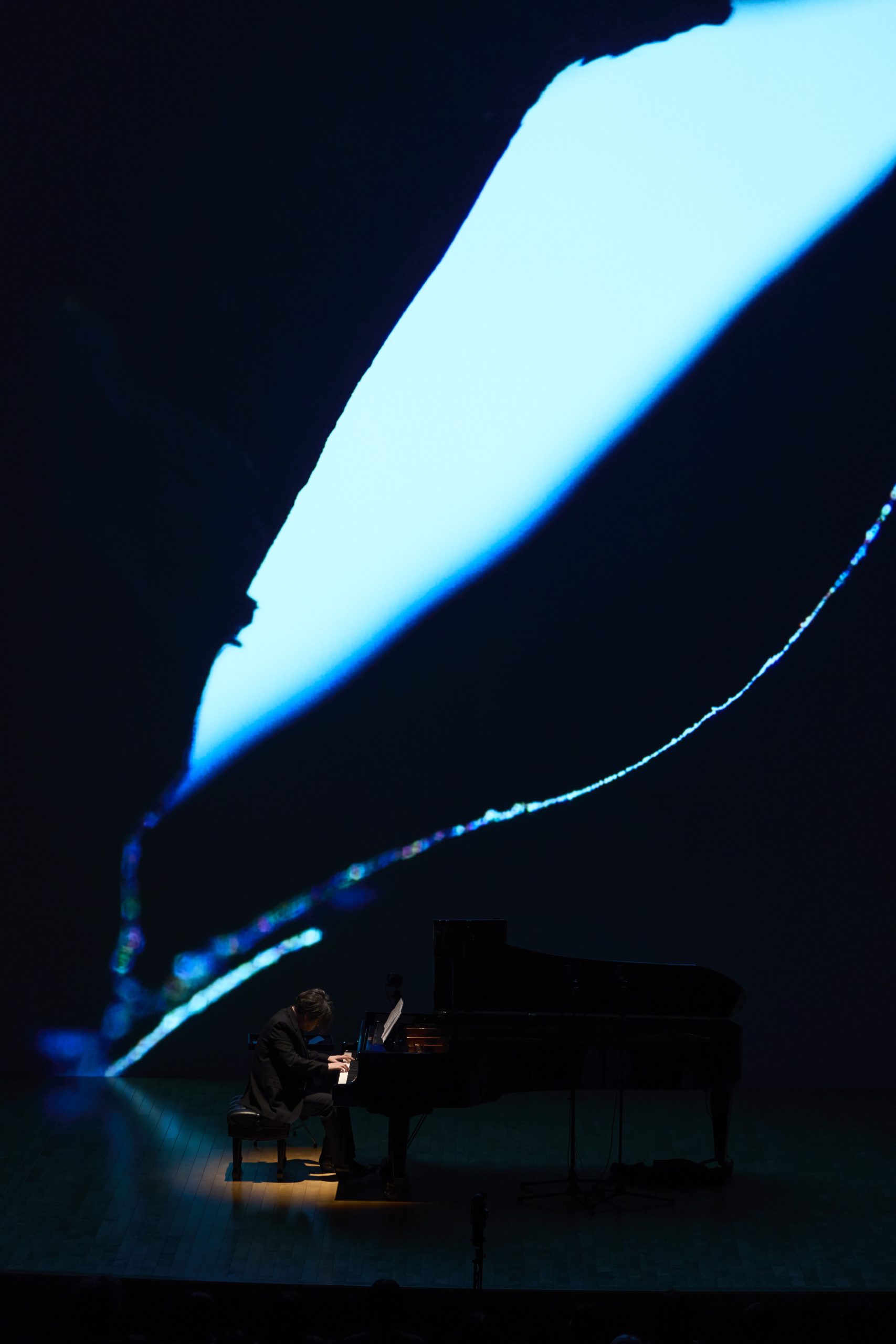
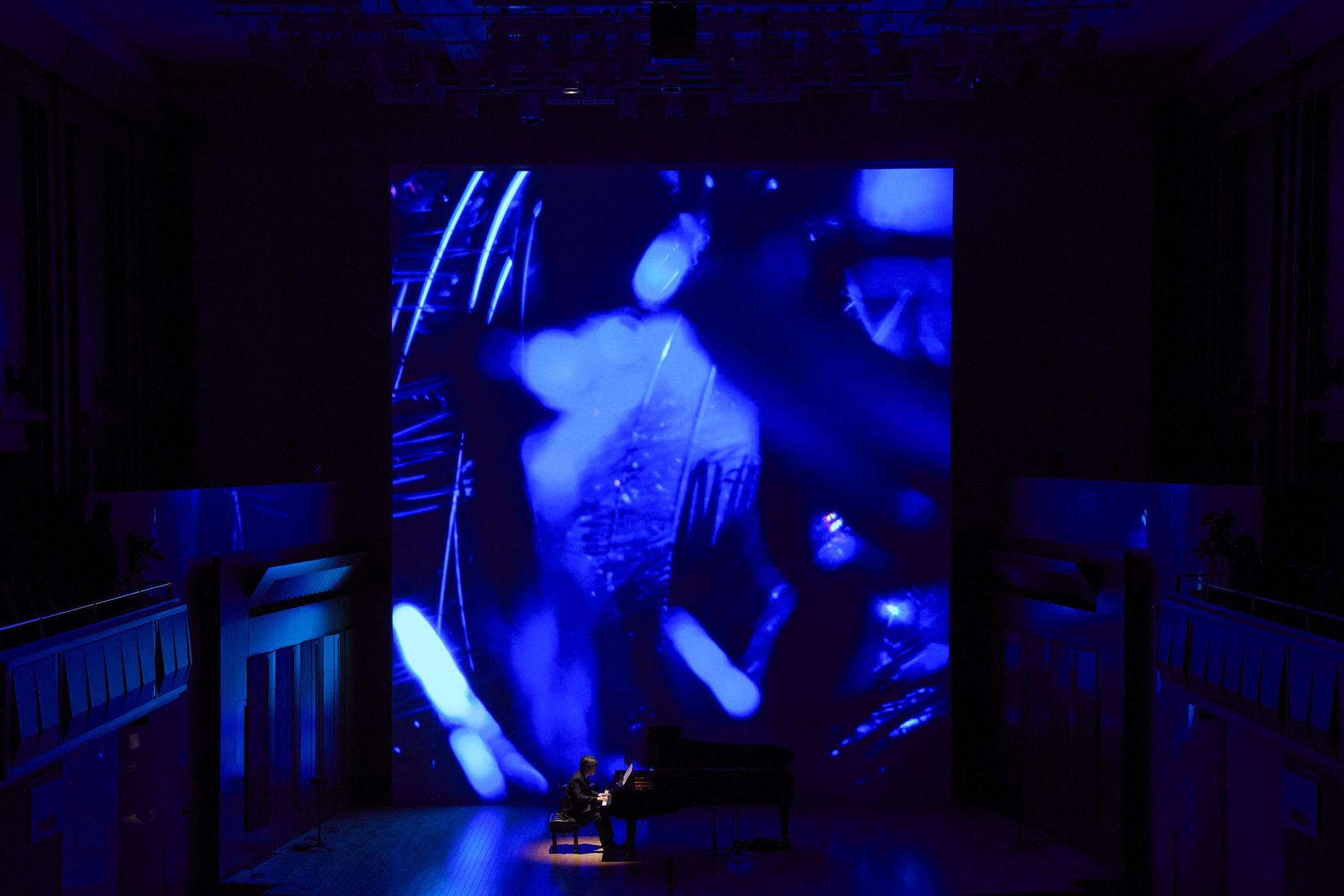
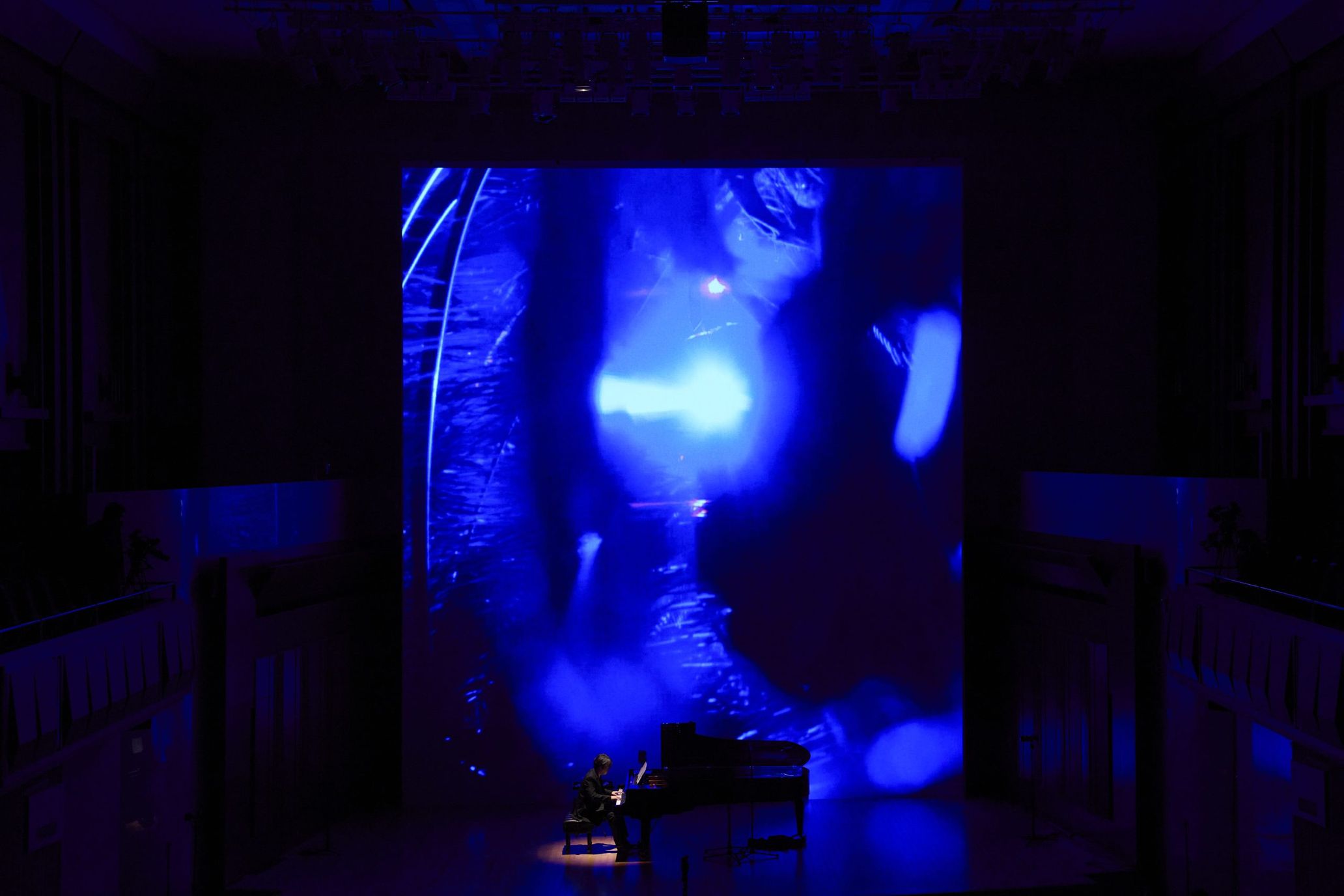
After playing “Blue Fish” from for maria, he played compositions from ATAK018 Soundtrack for Memories of Origin Hiroshi Sugimoto (2012). The songs on this album explore new piano sounds through multiple recordings and computer editing. As if to cherish the sounds he could only play there and then, Shibuya played each sound with great care. The rich sounds of the piano’s live nature, the opposite of recorded music, illustrated the instrument’s possibilities and appeal.
Performing with Shin Sasakubo for the first time and breathing new life into compositions
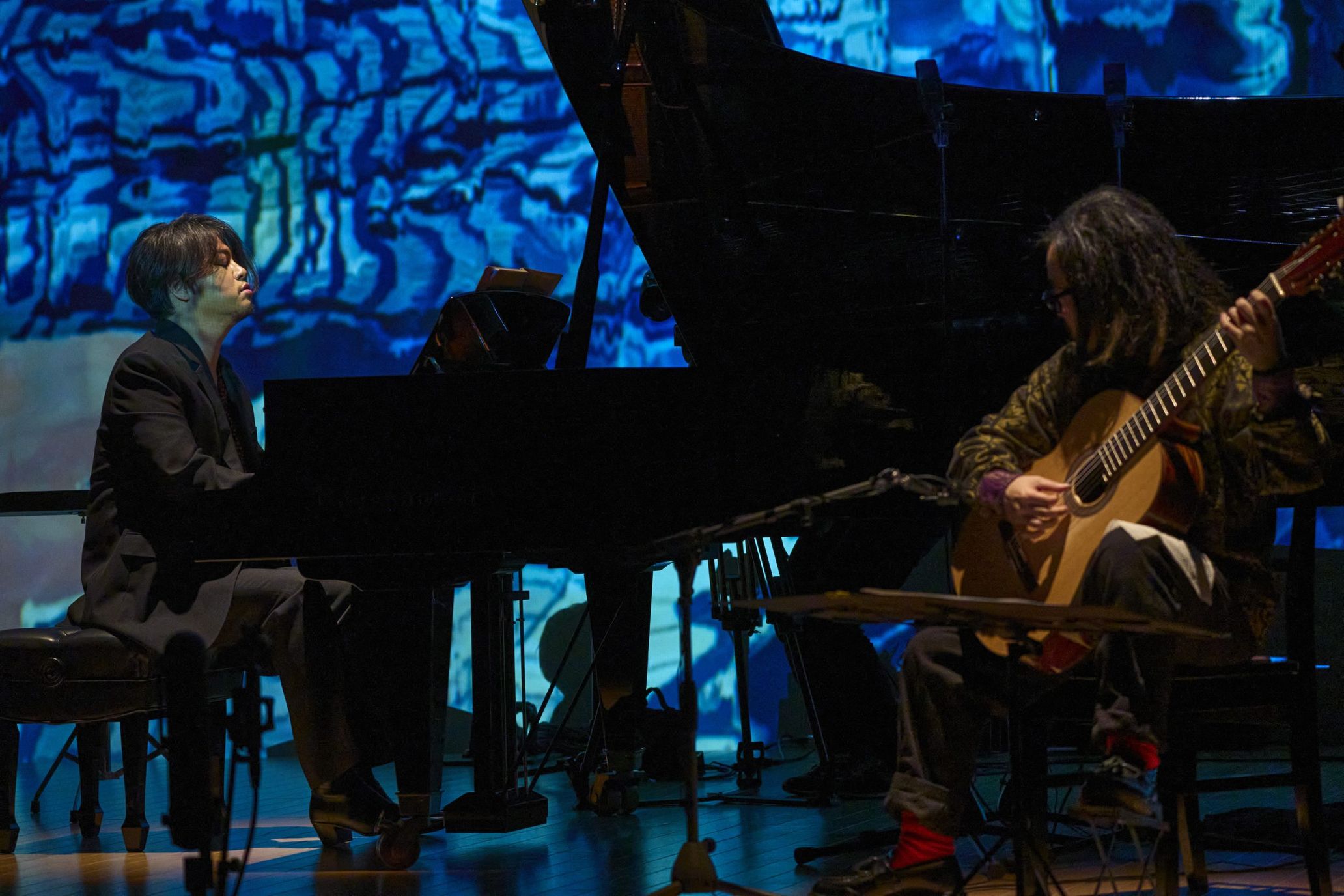
Next, the evening’s first guest, Shin Sasakubo, came onto the stage. Sasakubo is an internationally celebrated guitarist and composer living in Chichibu who previously lived in Peru for music and research. This was the first time he played with Shibuya (and this was Shibuya’s first time performing live with one guitarist).
They first played “Open Your Eyes” from for maria. Sasakubo’s guitar carried a South American folklore sound and added a new depth to Shibuya’s performance and composition, giving birth to a chemical reaction that surpassed my expectations.
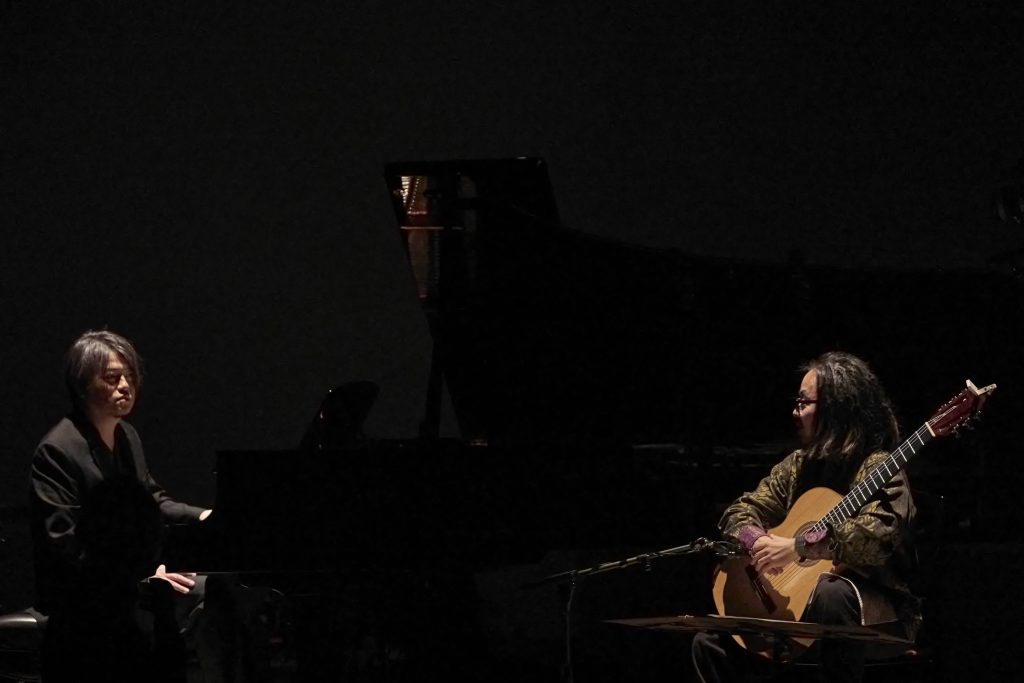
The pair then performed “BORDERLINE,” which became a sensation due to the music video featuring ballet dancer Nozomi Iijima and Stephanie Poetri providing vocals for the song, and “Appropriate Proportion” from ATAK018 Soundtrack for Memories of Origin Hiroshi Sugimoto. The first act of the concert came to an end with the ingenious musicians’ thrilling musical dialogue.
Tradition and innovation passed down from J.S.Bach and Arnold Schoenberg
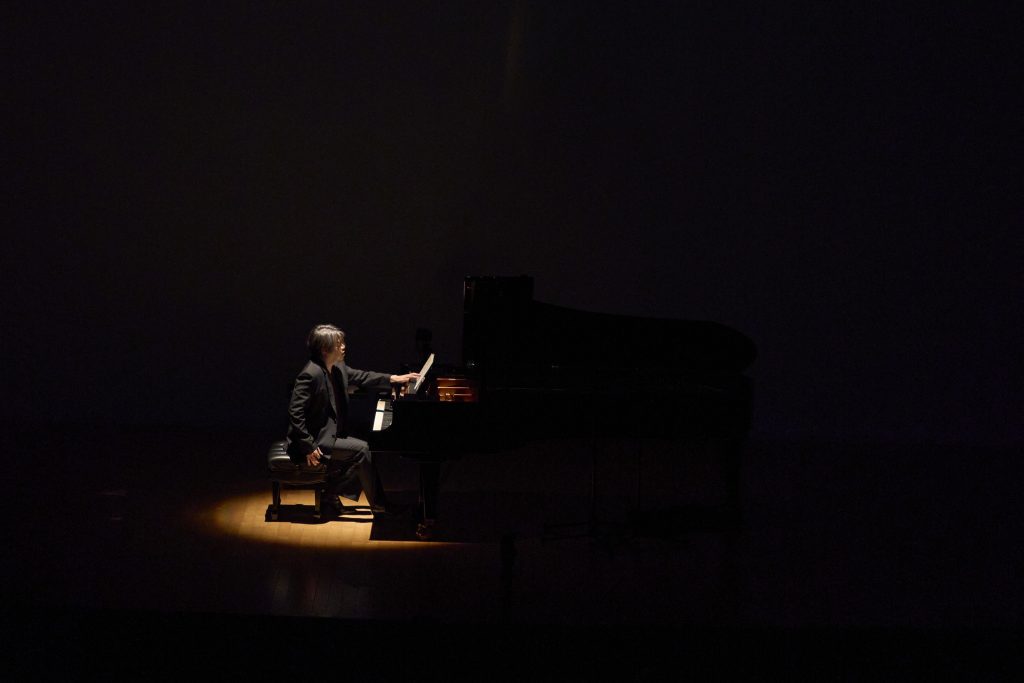
After the break, the concert’s second act opened with Shibuya playing other composers’ compositions. He played Schoenberg’s “Op19-1” and Bach’s “Fuga” and “Largo.” Bach, the godfather of music, laid the foundation for Western music by establishing the counterpoint technique and the law of harmony by inheriting traditions and styles from the second half of the Baroque era and the middle ages. Schoenberg pushed the counterpoint technique to the extreme and founded the twelve-tone technique to advance Western music in the first half of the 20th century. He revered Bach’s music: “…While until 1750 J. S. Bach was writing countless works whose originality seems the more astonishing to us the more we study his music.”*
*Schoenberg, Arnold, Style and Idea, Philosophical Library Inc., 1950
After playing compositions by these two figures, whose creations and relationship makes me think of the words, “tradition” and “innovation,” he started playing “Aria for Time and Space” from THE END (2012 onward), his opera with no human performers featuring Vocaloid Hatsune Miku.
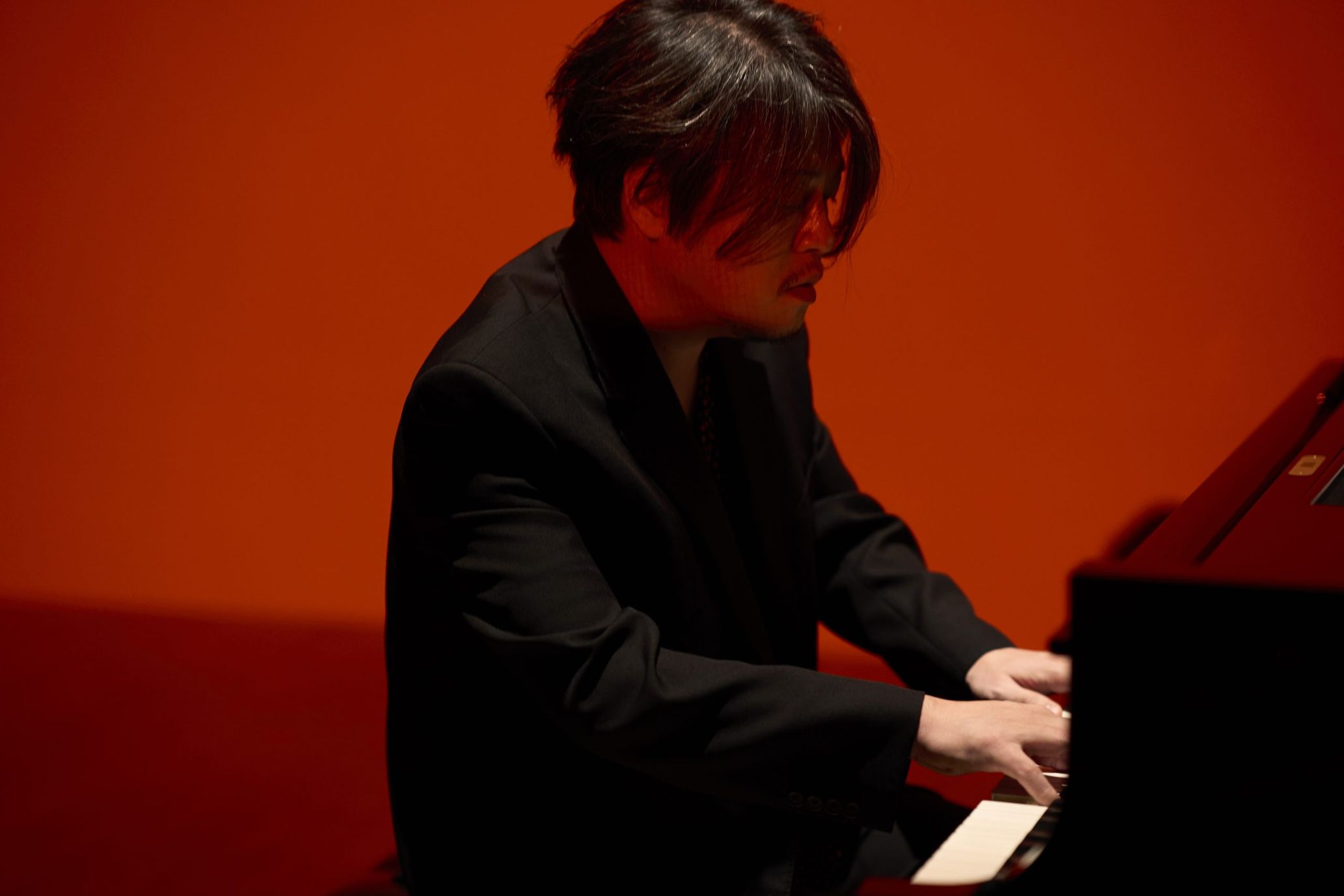
THE END is Shibuya’s first opera, where he challenged himself to take on a traditional art form and inject outsider elements such as technology and pop culture; it’s a significant piece of work that paved the way for unexplored possibilities in expression. I felt like the fact that he played this song on a celebratory night after Bach and Schoenberg embodied Shibuya’s present state and philosophy as well as his thoughts towards tradition and innovation.
Creating a transcendent sonic universe with world-class soprano singer Ayano Tanaka
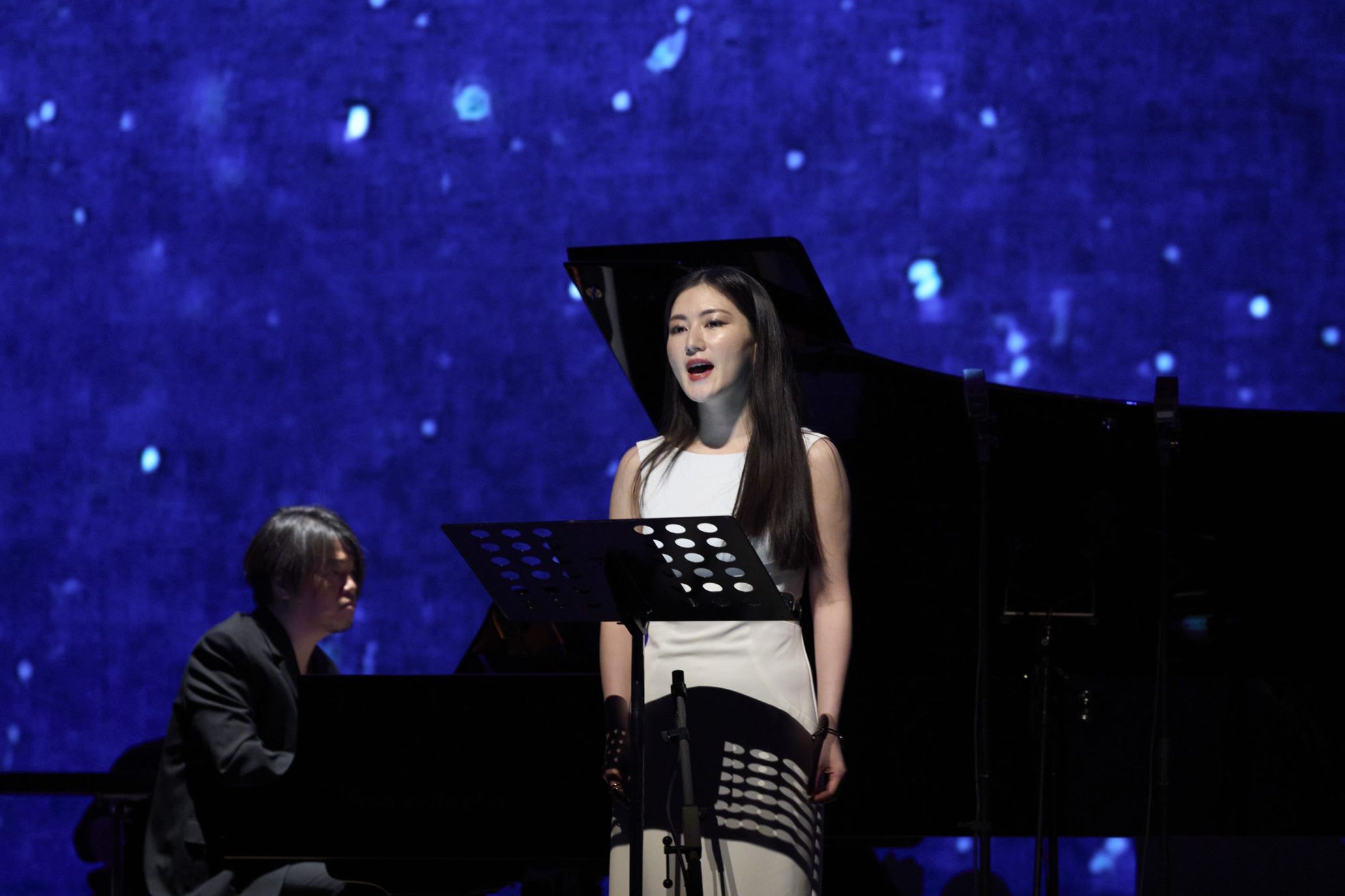
After playing “BUS” from ATAK024 Midnight Swan and the theme song of the film xxxHOLiC, “Holic,” the second guest of the night, a soprano singer based in Vienna, Ayano Tanaka, appeared onstage.
The pair performed together for the first time at their live performance, Music of the Beginning, in December 2021, making this their second time. This time, they first performed “BLUE,” a song from for maria. Once Shibuya started playing the piano lyrically, Tanaka began singing with a beautiful and powerful voice shining with the glimmer of life, reverberating through the corners of the hall without a mic. She captivated the audience right away.
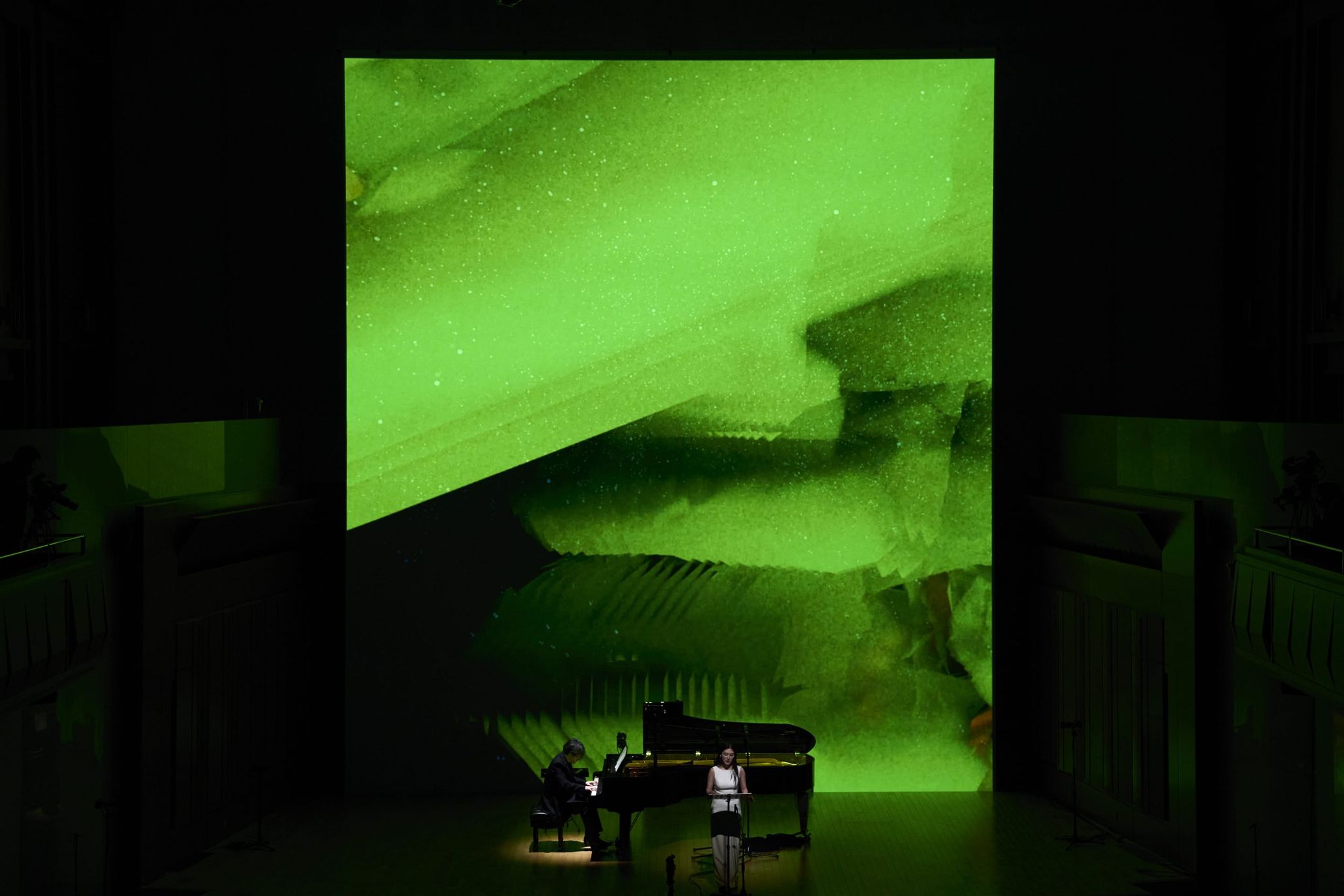
Next, they performed the main theme song from the Android Opera®︎ Scary Beauty (2018 onward), Shibuya’s first opera, and “I come from the Moon,” which he made for the short film KAGUYA by GUCCI (2022). In both original songs, the android Alter sings the vocals. The former features a poem by Michel Houellebecq, and the latter is laden with a surreal mood, as the lyrics are based on The Tale of the Bamboo Cutter.
Tanaka sang these two songs with a vocal performance only made possible by a human, yet she had an extraordinary voice that surpassed humans. She created a transcendent sonic universe separate from Alter and transported the whole room to another realm.
A new horizon beyond for maria, and moving forward

After performing with Tanaka, Shibuya played the title track of for maria, the eponymous theme song of the TV series Spec (2010), and the theme song of the film Midnight Swan (2020). As an artist and label owner, he had primarily produced experimental and innovative musical works. Shibuya started releasing music that would reach a wider audience and resonate with them, including “Spec” and “Midnight Swan,” after for maria.
The concert’s second act ended as I felt moved by how the music he made from loss and grief led to a new beginning; the hope of the end returning to a beginning.
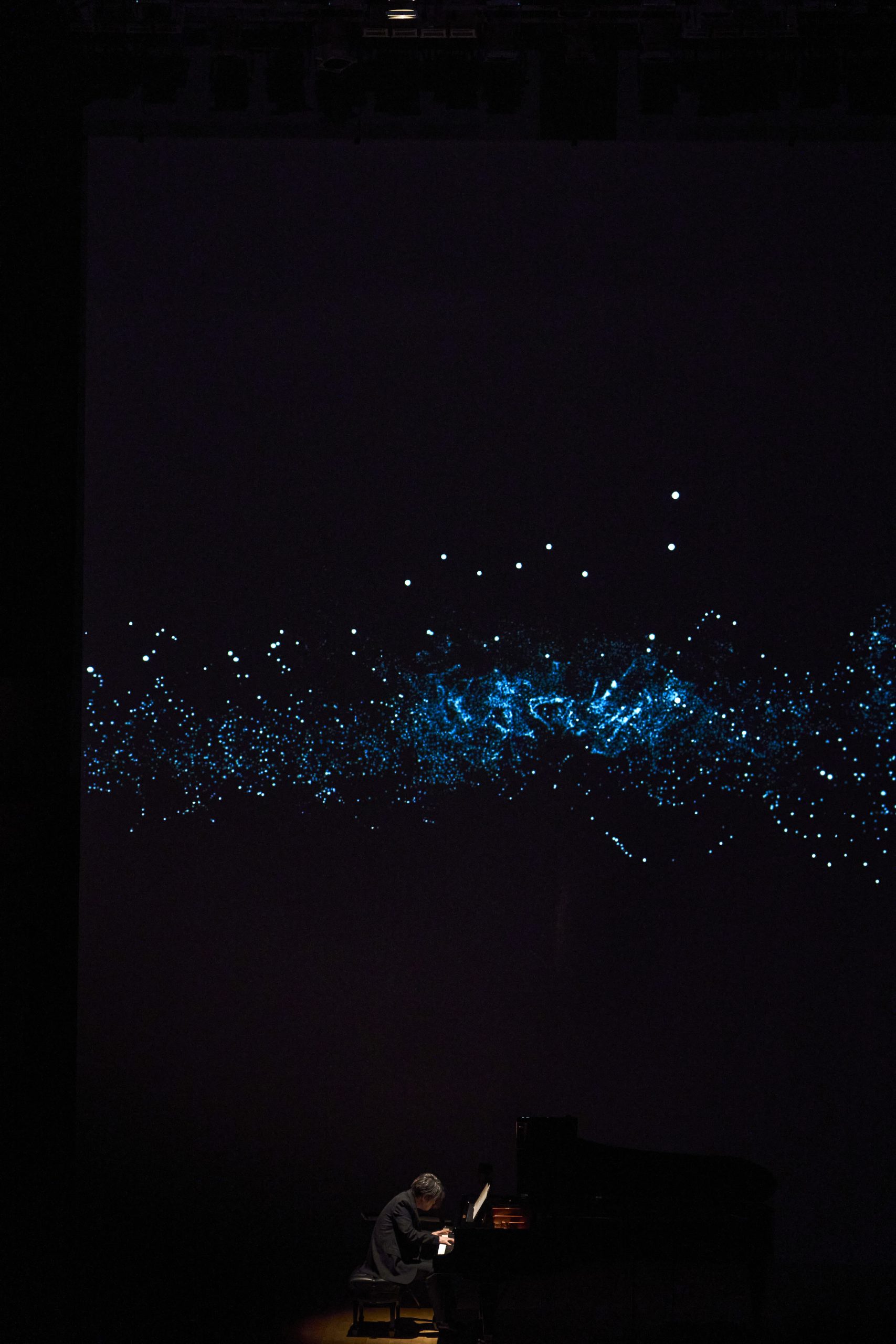
Shibuya came back to the stage amid thunderous applause for an encore. Once he played “Initiation” (2012), an essential song from THE END era with lyrics written by philosopher Hiroki Azuma, featuring Hatsune Miku’s vocals, he played the very last piece of the night, which also happens to be the closing song of for maria, “Our Music.”
No other song was more appropriate to end the night celebrating the anniversary of ATAK, which Shibuya founded with Maria. The descending eight-bar melody captures the listener’s attention right from the start. In the first four bars, the melody descends with a mixture of major 3rd and minor 3rd intervals, and after returning to the opening notes at the beginning of the last four bars, it descends again, this time with the perfect 4th as its base. Through the different and recurring notes, it felt like our everyday lives, filled with various events and emotions, were sublimated and crystallized into music we can all share.
The music that Shibuya and Maria made together turned into music for everyone in the audience—” our music”—and I’m sure it’ll continue to resonate.
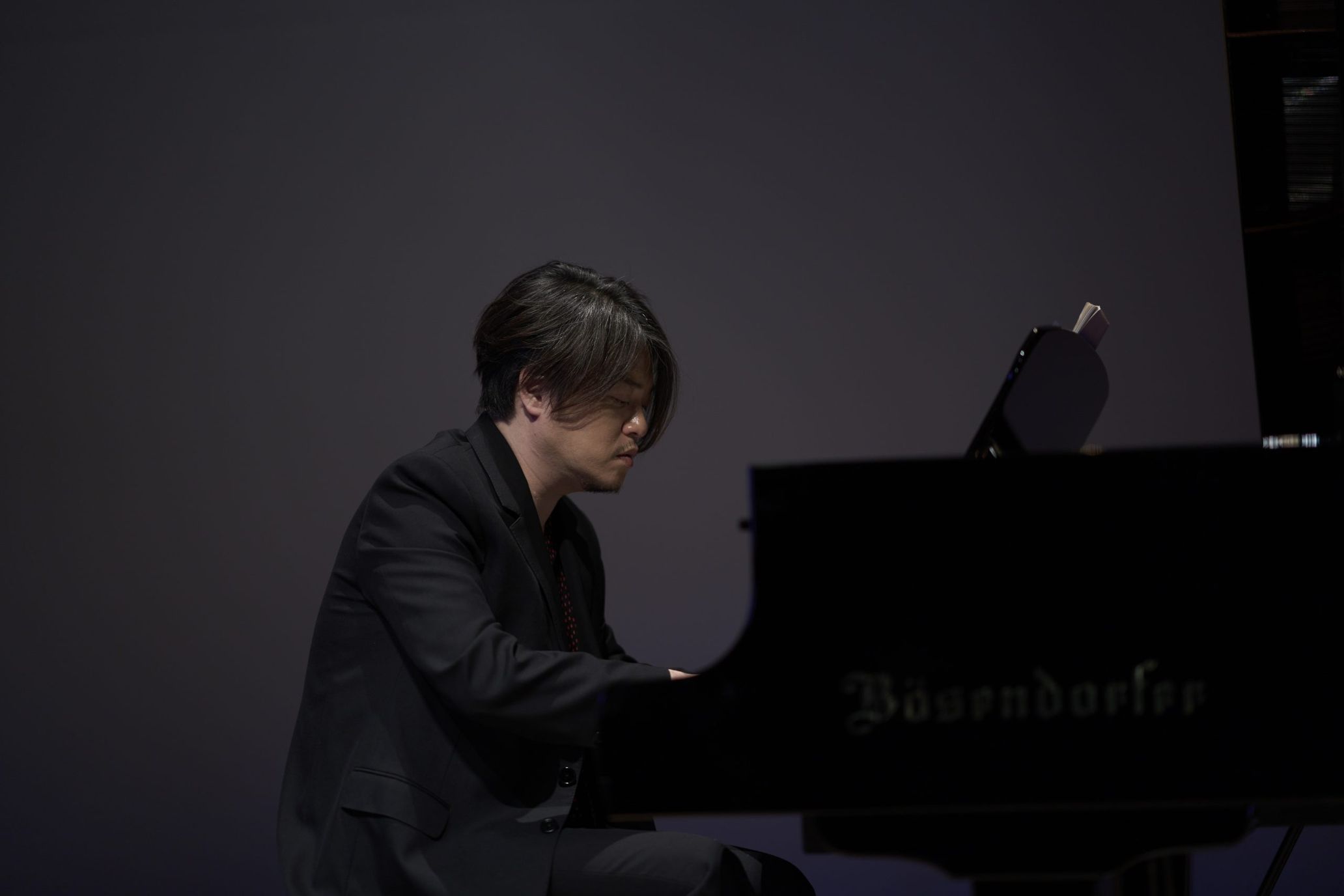
As I mentioned in the previous installment, Shibuya is a musician who progresses forward. That attitude is also consistent when he faces the piano, the instrument that started it all.
He has a thorough meticulousness about acoustics, and by working with a visual artist, he created an immersive experience beyond the confines of traditional solo piano concerts. Shibuya breathed new life into compositions by collaborating with incredible artists and reconstructed songs that initially had an orchestra and electronic instruments by taking a delicate pianistic approach.
What lies at the bottom of all this is an attitude of progressing forward, the furthest thing from an easy regression and the reconstruction of the past. This shaped Shibuya as a musician and ATAK as a label. Through the ultimate musical experience that evening, I was convinced he’ll continue to move forward.
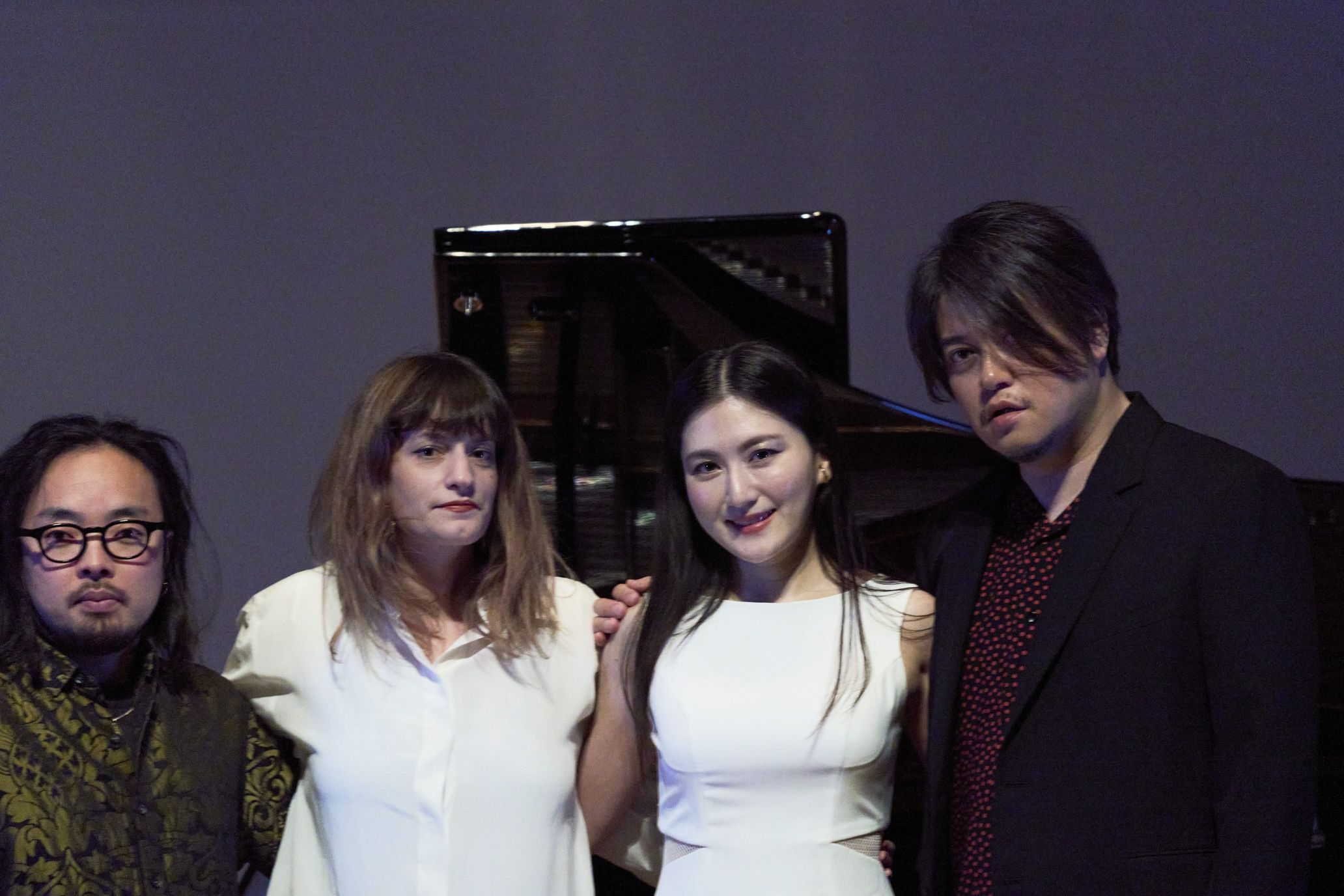
Photography Kenshu Shintsubo
■Keiichiro Shibuya’s solo piano concert, Keiichiro Shibuya Playing Piano In The Raw
Date: December 5th, 2022
Venue: Hamarikyu Asahi Hall
Starring: Keiichiro Shibuya (Piano)
Guest: Ayako Tanaka (Soprano), Shin Sasakubo (Guitar)
Video: Justine Emard
Setlist:
1st part
01. erosion
02. Blue Fish
03. Lightning Fields
04. Empty Garden
05. Life
06. Memories of Origin
07. Open Your eyes with Shin Sasakubo(Acoustic guitar)
08. BORDERLINE with Shin Sasakubo (Acoustic guitar)
09. Appropriate Proportion with Shin Sasakubo (Acoustic guitar)
2nd part
01. Schoenberg Op19-1
02. Bach Fuga
03. Bach Largo
04. Aria for Time and Space
05. Bus
06. Holic(Piano version)
07. Blue with Ayako Tanaka(Soprano)
08. Scary Beauty with Ayako Tanaka(Soprano)
09. I come from the Moon with Ayako Tanaka(Soprano)
10. for maria
11. Spec
12. Midnight Swan
Encore
13. Initiation
14. Our music
